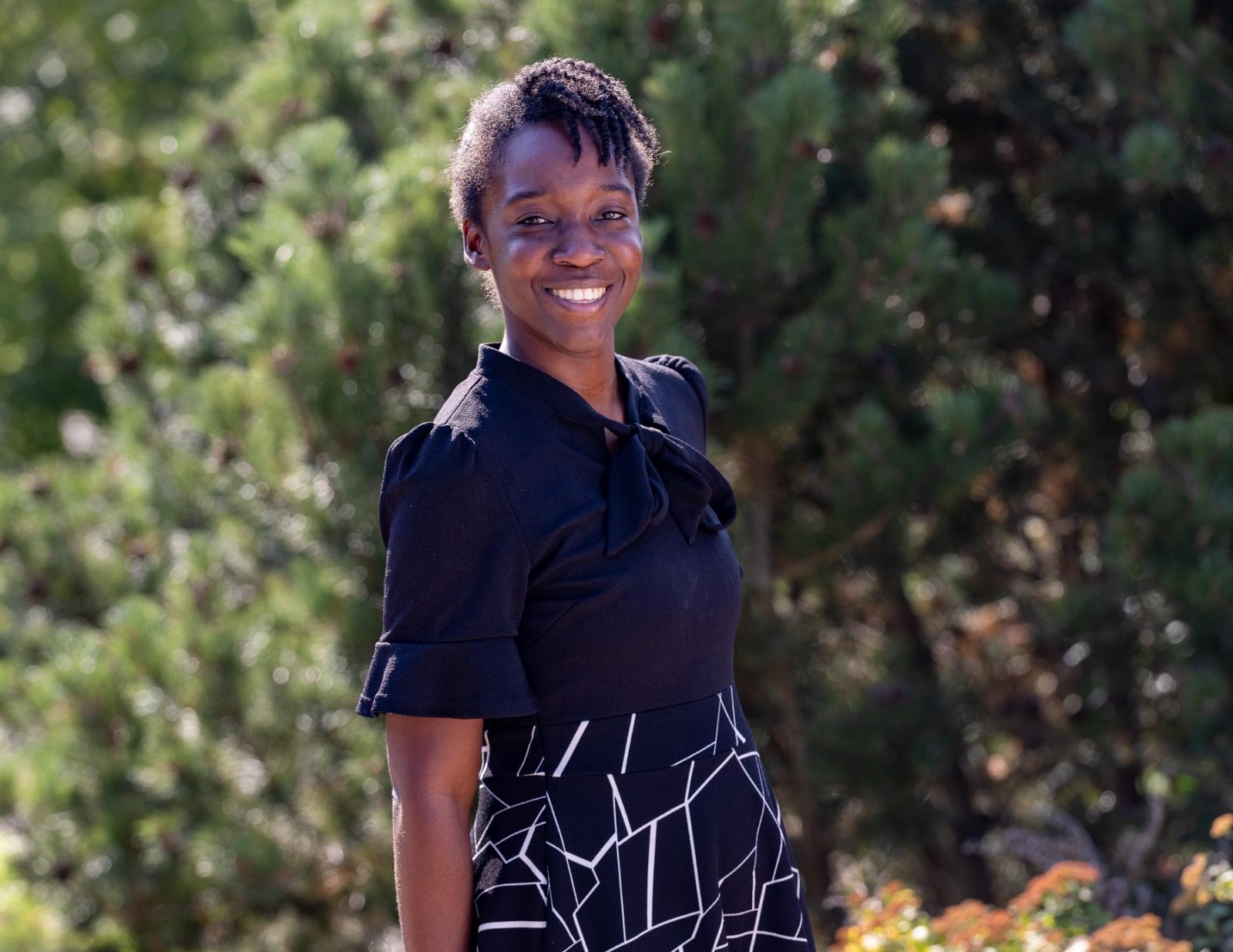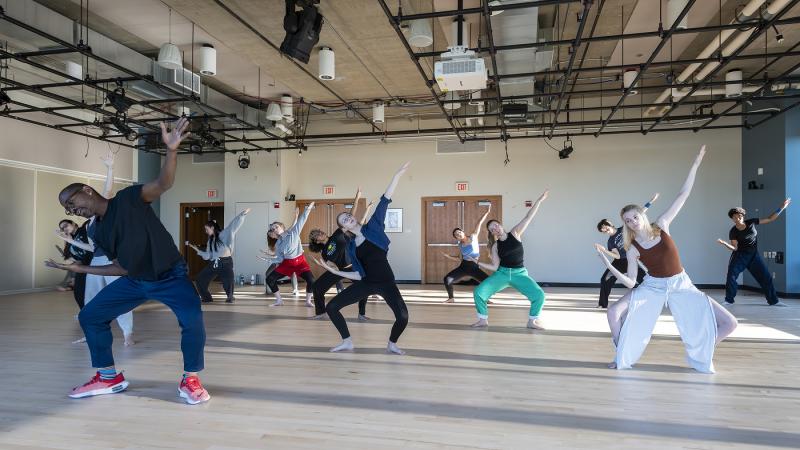Ornella J. Hills ’12, the inaugural Mark Burstein Assistant Professor of Global and Public Health at Lawrence University, arrives on campus with a six-figure grant to study secondary traumatic stress among community health workers serving minoritized populations in central Wisconsin.
Hills began the process of securing the $250,000 Advancing a Healthier Wisconsin (AHW) Endowment grant while teaching at the University of Wisconsin-Stevens Point. The grant moves with her as she joins her alma mater in the newly endowed faculty position that will further the teaching of global and public health. The position is endowed in the name of Mark Burstein, who served as Lawrence’s 16th president from 2013 to 2021.
Hills’ work in combatting secondary trauma is one of 40 new projects being funded by AHW grants, all aimed at improving health in Wisconsin. AHW’s Momentum Grants support efforts to address Wisconsin’s most pressing health challenges. The funding is for projects to be completed within a 24-month timeframe. Grant applications underwent a rigorous review process before approval of a final slate of projects by the Medical College of Wisconsin (MCW) Consortium on Public and Community Health, the AHW Research and Education Advisory Committee, and the MCW Board of Trustees—AHW’s three oversight bodies.
Meet Lawrence's new faculty members
Hills’ project aims to empower community health workers with a toolkit of culturally responsive, evidence-based, low-cost approaches to mental health promotion focused on the high-need communities of central Wisconsin, including the Hmong, Hispanic, and refugee populations. It will include developing and implementing workshops, creating advocacy tools to highlight secondary traumatic stress (STS) and burnout, and providing resources for health care workers and their employers to support mental health in the workplace.
“We went into this because poor mental health both before and after the pandemic has been something that’s been so persistent for many individuals,” Hills said. “Take the Hmong community, for example. In a recently published study, a research team at UW-Madison and Johns Hopkins found that over 80% of Hmong individuals in their Wisconsin sample had experienced prior trauma.”
Community health workers operate as the bridge between a patient and their medical providers. In minoritized communities, they often serve as the only person community members trust, and in many cases the only person they can communicate with, as many health workers are bilingual and double as translators. The trauma and stress can come from multiple directions, often piling up and becoming a heavy load.
“When you are hearing the stories of someone else’s trauma, you can experience secondary or indirect trauma,” Hills said. “That can have really negative effects on your own mental health. Currently, we don’t have solid procedures for helping health workers manage their mental health and the consequences and stresses of their position. So, you tend to have higher burnout and people leaving the position. When you have one Hmong or Hispanic health worker serving the entire community, this can be a tremendous loss to the community.”
In addition to designing programs that individual community health workers can utilize, Hills’ two-year study aims to design programs that employers can incorporate into their toolkit to help minimize burnout in their employees.
Hills said it was while pursuing her doctorate at the University of Wisconsin-Madison that she began to pay closer attention to stories of trauma and secondary trauma coming from minoritized communities.
“There weren’t any programs that were addressing it,” she said. “I began to recognize that this is a huge issue.”
AHW is Wisconsin’s largest health improvement philanthropy. It was established by the Medical College of Wisconsin to steward a generous financial gift from Blue Cross & Blue Shield United of Wisconsin. Since 2004, AHW has invested $350 million in more than 700 health research, workforce development, and community health initiatives statewide.
“In our 20th year of grant-making, AHW continues to propel the most promising work and ideas to advance the health of all Wisconsinites,” said AHW Director Dr. Jesse Ehrenfeld. “These 40 projects totaling nearly $10 million reflect our commitment to investing the funds entrusted to us to improve lives throughout the state.”
Hills' project is in collaboration with the WIPPS Hmong and Hispanic Communication Network, HOLA Inc., and Nordic Night Sauna, LLC.
Hills majored in biochemistry at Lawrence. She went on to earn a master’s in population health and a Ph.D. in mass communication, both at UW-Madison. She was on the faculty at UW-Stevens Point from 2022 until joining Lawrence this fall.




